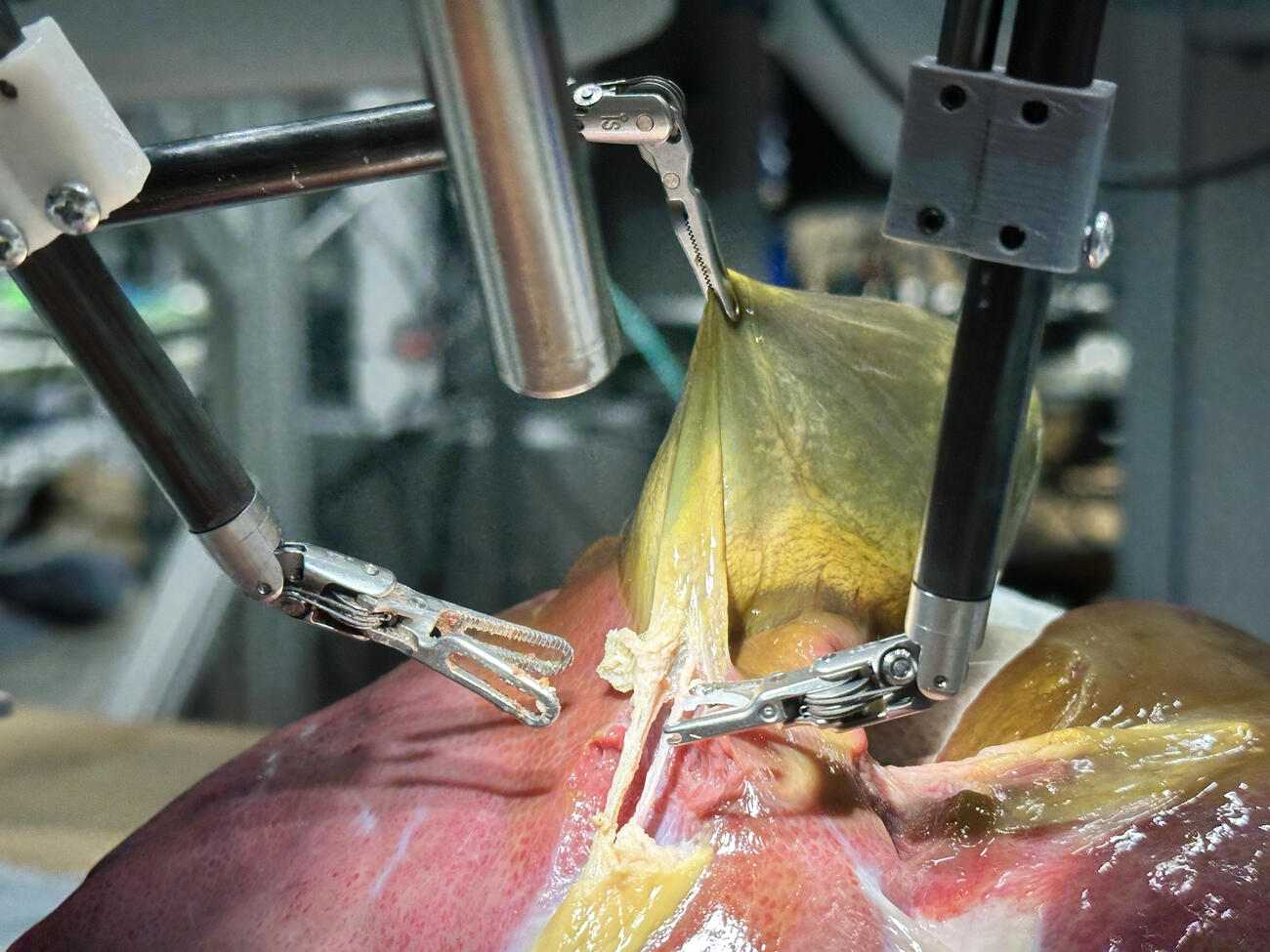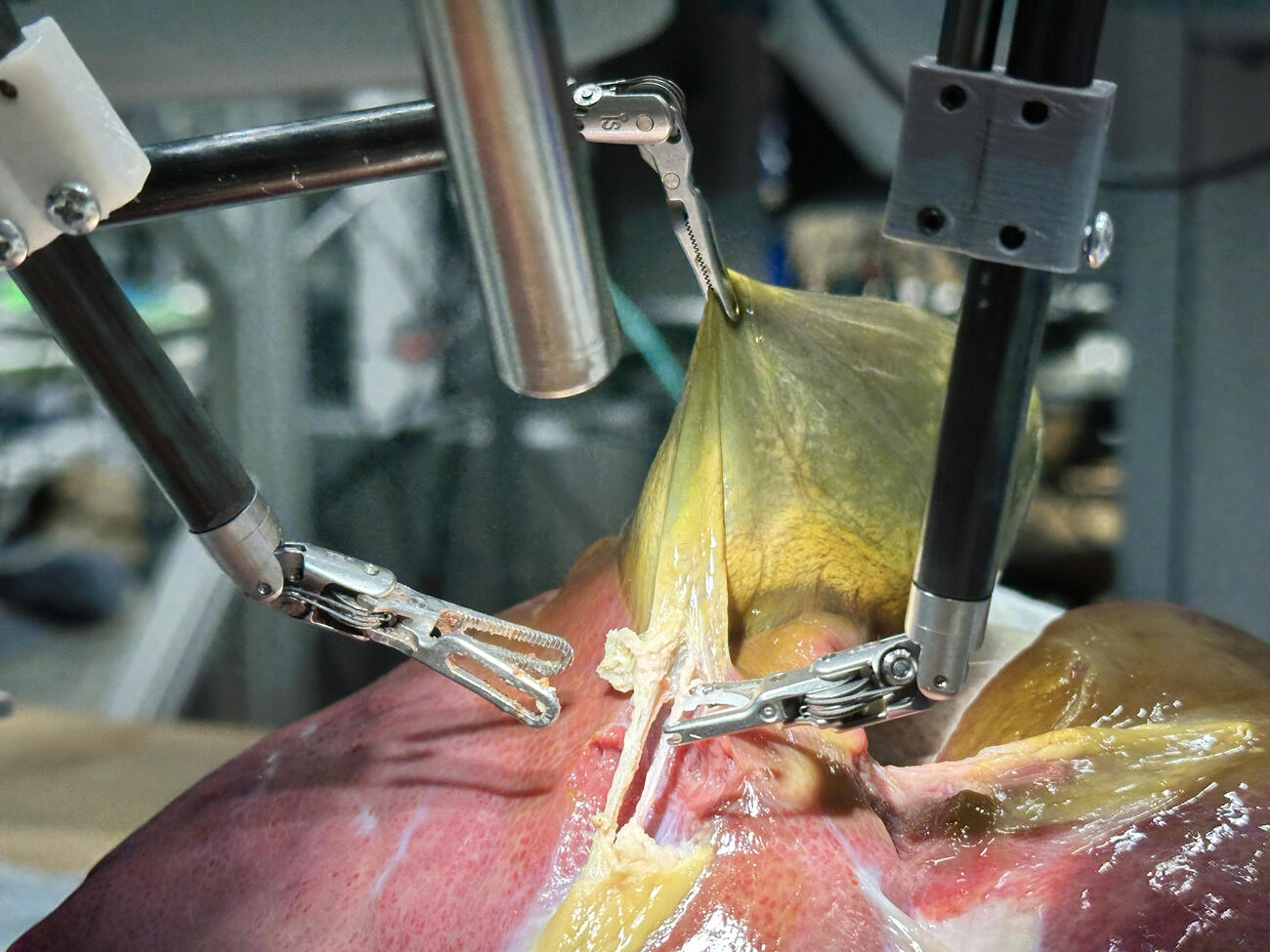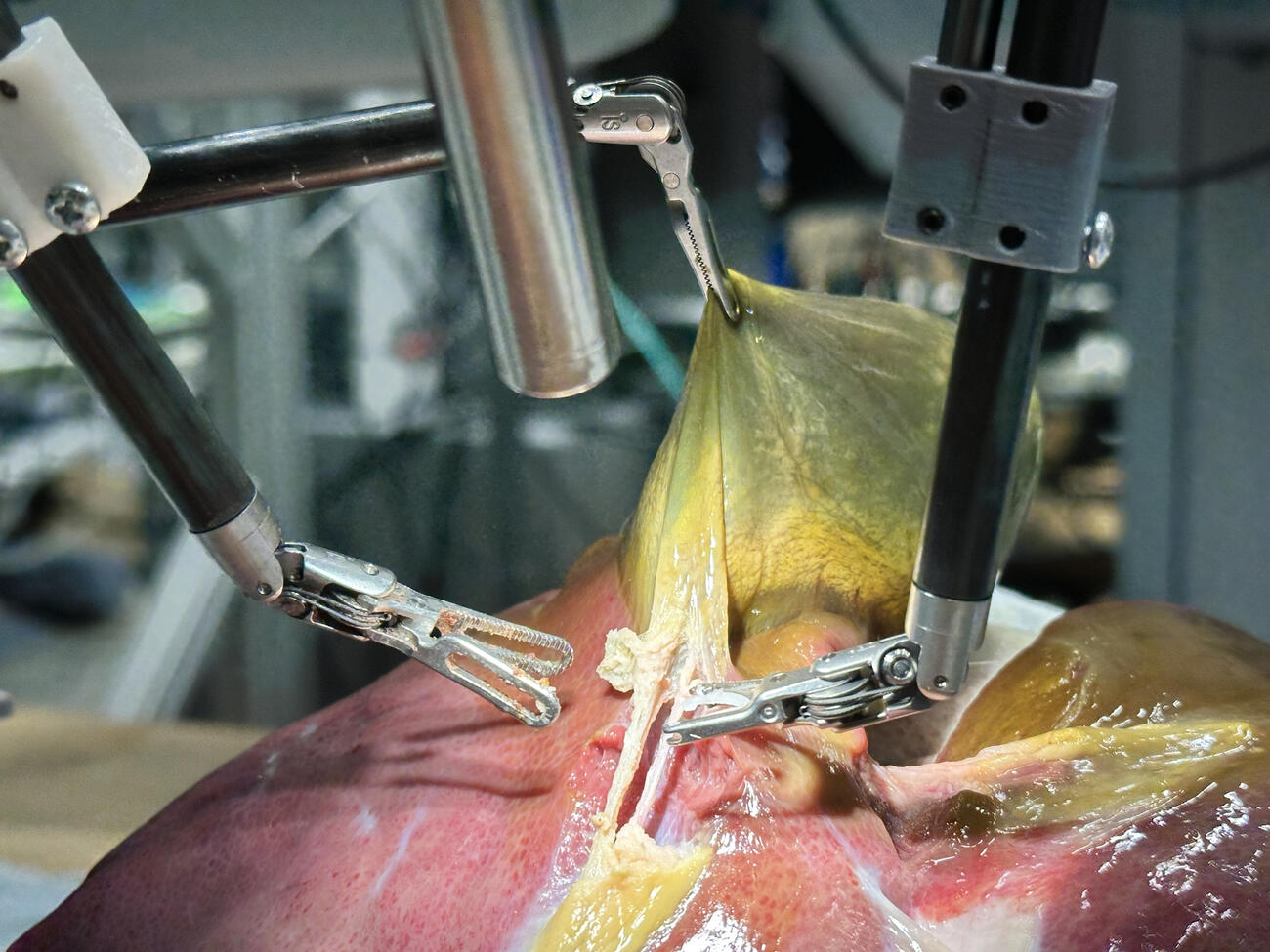Robot performs first realistic surgery without human help: System trained on videos of surgeries performs like an expert surgeon
Robot performs first realistic surgery without human help: System trained on videos of surgeries performs like an expert surgeon

Robot performs first realistic surgery without human help

A robot trained on videos of surgeries performed a lengthy phase of a gallbladder removal without human help. The robot operated for the first time on a lifelike patient, and during the operation, responded to and learned from voice commands from the team—like a novice surgeon working with a mentor.
The robot performed unflappably across trials and with the expertise of a skilled human surgeon, even during unexpected scenarios typical in real life medical emergencies.

And then you‘re lying on the table. Unfortunately, your case is a little different than the standard surgery. Good luck.
At some point in a not very distant future, you will probably be better off with the robot/AI. As it will have wider knowledge of how to handle fringe cases than a human surgeon.
We are not there yet, but maybe in 10 years or maybe 20?
I'd bet on at least twenty years before it's in general use, since this is a radical change and it makes sense to be cautious about new technology in medicine. Initial clinical trials for some common, simple surgeries within ten years, though.
This is one of those cases where an algorithm carefully trained on only relevant data can have value. It isn't the same as feeding an LLM the unfiltered Internet and then expecting it to learn only from the non-crazy parts.
The main issue with any computer is that they can't adapt to new situations. We can infer and work through new problems. The more variables the more "new" problems. The problem with biology is there isn't really any hard set rules, there are almost always exceptions. The amount of functional memory and computing power is ridiculous for a computer. Driving works mostly because there are straightforward rules.
Or the most common cases can be automated while the more nuanced surgeries will take the actual doctors.
I doubt it. It simply would be enough, if the AI could understand and say when it reaches its limits and hand over to a human. But that is even hard for humans as Dunning & Kruger discovered.
Fringe cases yes, like rare conditions. It almost certainly won't be able to handle something completely unexpected.
I wonder how doctors could compare this simulation to a real surgery. I’m willing to bet it’s “realistic and lifelike” in the way a 4D movie is.
Biological creatures don’t follow perfect patterns you have all sorts of unexpected things happen. I was just reading an article about someone whose entire organs are mirrored from the average person.
Nothing about humans is “standard”.
I think "lifelike" in this context means a dead human. The robot was originally trained on pigs.
Right I'm sure a bunch of arm chair docs on lemme are totally more knowledgeable and have more understanding of all this and their needed procedures than actual licensed doctors.
and since its been the way its been for awhile sugeons know more theoretically how to do surgery rather than practically so can't really take over.
What if I'm on the table telling the truth?
That’s a different thing indeed. In your case the AI 🤖 goes wild, will strip dance and tell poor jokes (while flirting with the ventilation machine)
I assume my insides are pretty much like everyone else's. I feel like if there was that much of a complication it would have been pretty obvious before the procedure started.
"Hey this guy had two heads, I'm sure the AI will work it out."